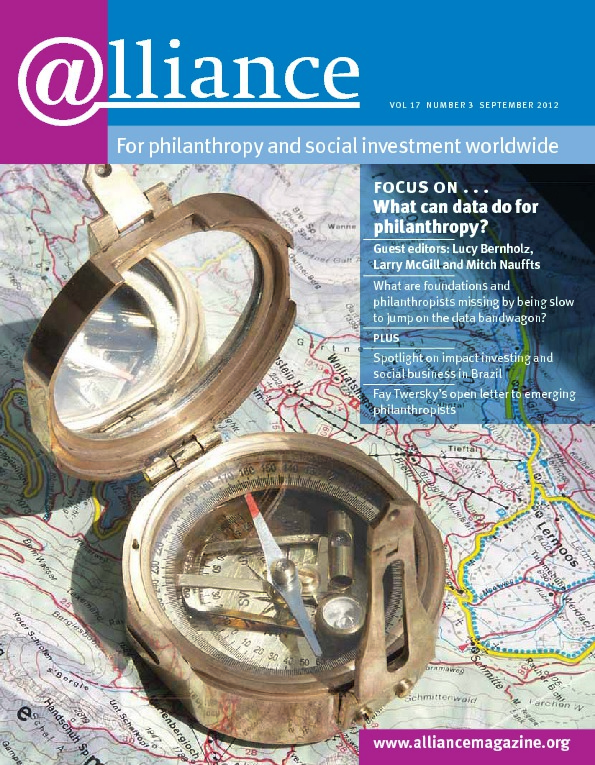Thank you, Françoise, for opening up the ‘gender conversation’. At Mama Cash we agree with many of the points you make: gender analysis is not only about girls and women, and we need to be careful not to use the terms gender and women interchangeably. In reflecting on your article, here are some thoughts that I hope will help expand the conversation.
As you wrote, understanding ‘difference’ is crucial for foundations to do their work effectively. In relation to gender, every foundation needs to find what approach works for them. Gender mainstreaming, supporting women-led solutions, supporting men-led solutions, or a combination of these can all be effective if implemented well, as shown by the Untapped Potential research on European foundations commissioned by Mama Cash, and the GrantCraft guide Funding for Inclusion.
Nevertheless, I was struck by the assertion that ‘an exclusively female-oriented approach does not acknowledge that men and boys are part of the solution for the myriad of challenges we face today’. This is simply not true. Many women’s (rights) organizations work on issues that affect everyone in society. What they bring to the table are inclusive approaches to achieving social justice that recognize the multiple aspects of identity and struggle with which women and girls contend.
The assumption that non-women’s organizations will address the needs of women is a misconception. Lately we have seen some funders reinstate sector-specific approaches to funding women-led solutions because gender mainstreaming has been simplified to the extent that it has become gender blind and meaningless.
Likewise, I think that touting women and girls as the solution to the world’s ills can be problematic. We know that the status quo is rooted in inequalities that disproportionately affect women (as statistics on violence, land ownership, etc illustrate). Yet, many efforts sidestep power dynamics and do not examine the structural nature of these inequalities. When we speak of effectiveness, it is imperative to also support women’s organizations that work to challenge these unjust norms, practices and laws. This structural change, in turn, will be beneficial to societies more broadly.
We also need to take into account the particular challenges trans people encounter in their daily lives (like not being able to access work and healthcare services, as well as increased levels of violence and social exclusion). Truly opening the ‘gender conversation’ also means including their voices.
Finally, you suggest that instead of counting the percentage of women who benefit from programmes, we should be evaluating how foundation programming may strengthen or weaken gender stereotypes. We’d love you to take up this challenge, knowing that it will also contribute to our effectiveness as foundations and our accountability to the people we serve.
Nicky McIntyre
Executive director, Mama Cash






Comments (0)